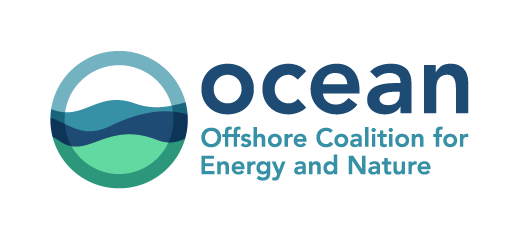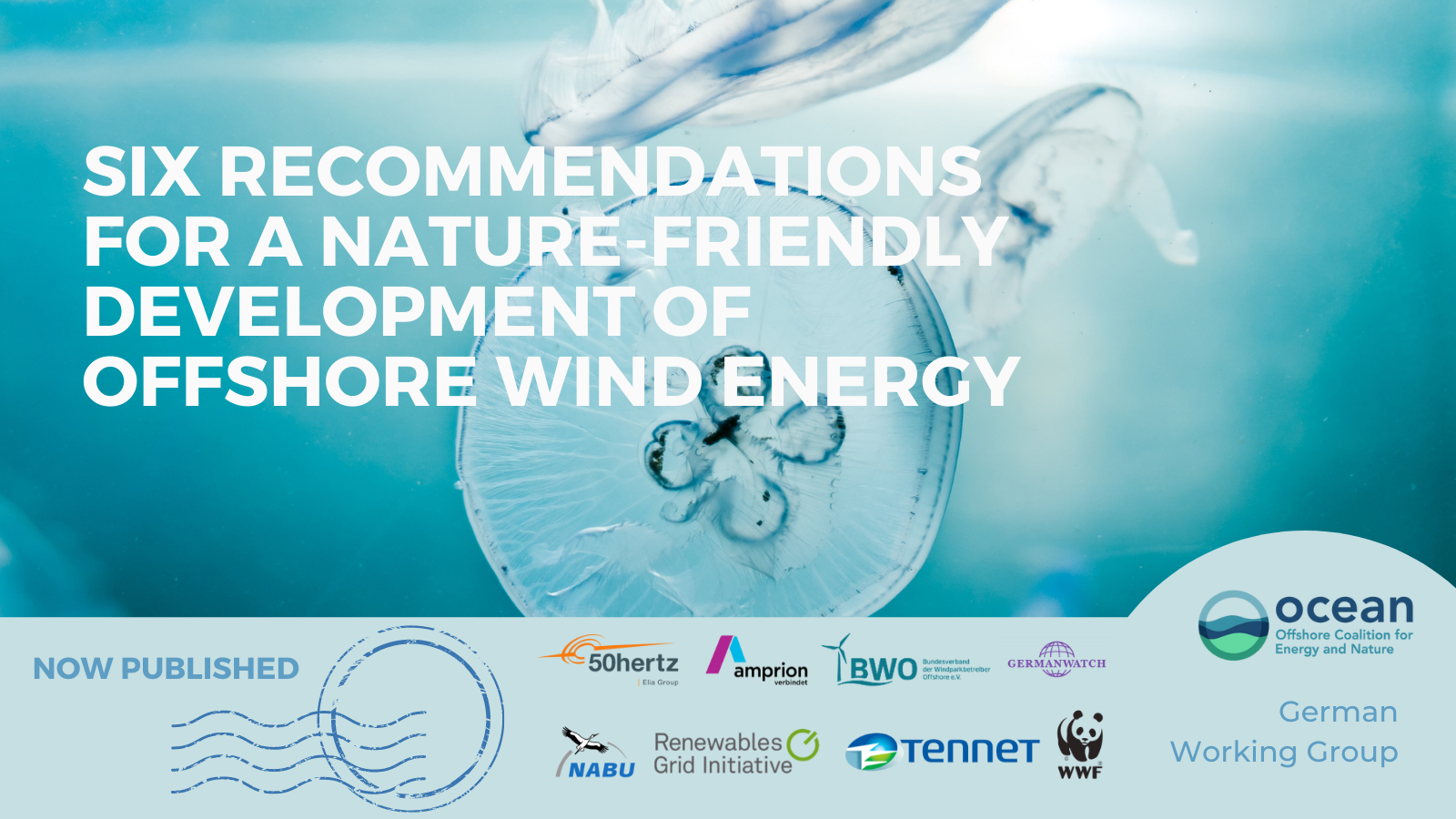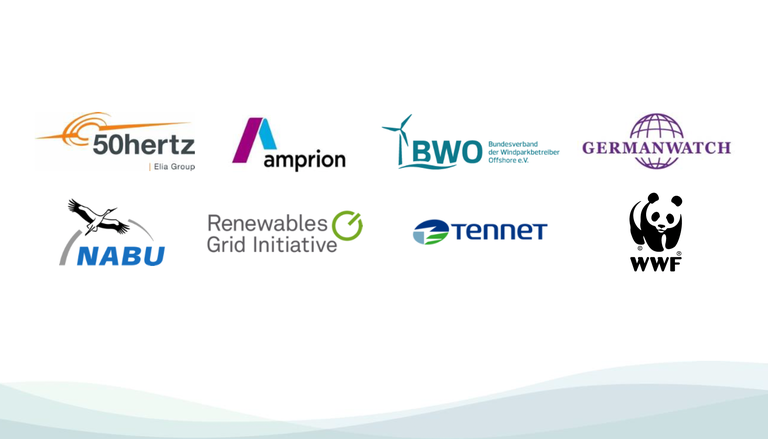Decisions taken at the beginning of the upcoming legislative period in Germany and at European level are essential for achieving our climate targets. The development of offshore wind energy in the North Sea and Baltic Sea and its connection to the grid will play a decisive role for renewable energy generation in Germany. This development must take place in harmony with nature.
Against this background, the German Working Group of the Ocean Coalition for Energy and Nature (OCEaN) calls on the German coalition partners to anchor the measures elaborated in their paper "Six recommendations for a nature-friendly development of offshore wind energy" into the future policymaking at federal level as part of the coalition agreement. At the same time, the recommendations are of equally great value for the European policy, specifically when it comes to the implementation of the European Climate Act and Europe-wide climate neutrality by 2050.
OCEaN is a coalition of wind farm operators, transmission system operators, environmental and climate protection organisations that serves as an open discussion forum in which existing information and experience is assessed and compiled, further research needs are identified, and suggestions are made for improvements to the planning of offshore wind energy development in the European seas. The German working group consists of eight members: 50Hertz, Amprion, BWO, Germanwatch, NABU, TenneT, WWF and the Renewables Grid Initiative, which also serves as the group moderator.


